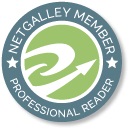Possibly one of the most purely fun jobs of a librarian is collection development. Adding new materials in a pattern that best builds your collection as a thriving complete whole, no section over-enhanced, no section under-appreciated, is an art. The most important piece of that art is listening to your readers. What do they want to read? What information do they need? Once you know that, where does your current collection fall short of those needs? With these two answers in hand, you are well on your way.
Once you’ve determined what your collection needs, however, there is always the matter of which new books are best to fill those roles. One time honored way to do this is to read trusted reviewers. This is a great way to maximize your time, as no one has time to read the entirety of a field in order to hone in on the handful of new materials that are needed. For the time that you do have however, it is really nice to spend a chunk of it reading the field, especially if you can read the newest materials, before there are many reviews. That is where Net Galley comes in. Net Galley allows librarians access to about-to-be published books in exchange for feedback and reviews. Often you can stumble across gold that will be a true asset to have in your collection. I will occasionally be reviewing some of my finds here, on my blog.
Today’s review is of Women and Leadership, by Deborah L. Rhode, slated to hit the shelves November 2016.
The first thing I noticed upon cracking open this book was the level of research that clearly went into it. You cannot read a sentence without tripping over at least two endnotes, and each leads to quality resources. I might recommend this book as an addition to the Business School library at Strayer University, where I currently run a campus library branch, solely on this strength. One information literacy skill that our students learn in their studies is that of following the trail of evidence, to see if a particular argument holds up to deep research. This book is well suited for that learning. There are of course many books that fit this description, but not many that are in addition so plainly written. Rhode’s writing style is clear and direct. My students, many of whom are second-language English speakers, will appreciate the absence of unnecessarily long words or complex sentence structures. Despite the plain writing style, the content is not watered down in the manner of most simply written books.
In addition to the writing style, the content Rhode discusses is extremely relevant to my business students, a majority of whom are women. With separate sections on Women in politics, management, law, and academia, Rhode clearly lays out the struggles women face when reaching for leadership in our society. She labels each prejudice, systemic injustice, and structural issue clearly, giving examples and statistics to demonstrate the reality of each. Though she offers some advice to women who try to get past these obstacles, and to companies who wish to lower these obstacles for their employees, she doesn’t condescend to have all the answers nor does she simplify what is a very complex issue. Instead, Rhode synthesizes both statistical research and expert advice, noting where experts disagree, and leaves readers to make their own conclusions.
Women and Leadership is a book that will nicely complement or current business collection. Though we have several books about discrimination in the workplace, many are over 3 years old, which in today’s changing marketplace is rather outdated. Our students need books which contain recent research, are plainly written, and accurately convey the complexities of the field. I have been looking for books to fill this gap, and Rhode’s well put together book will be a good fit for that slot.




